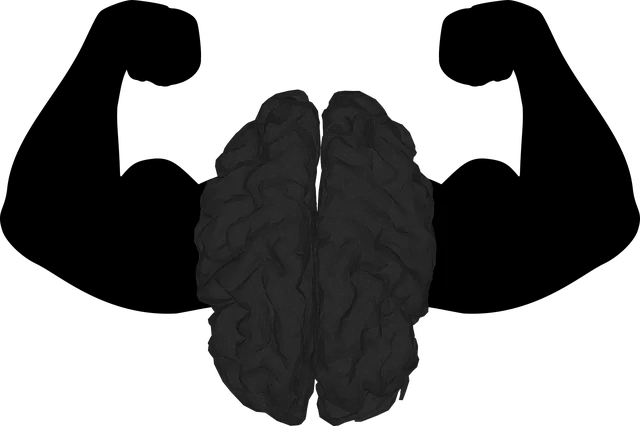Longmont residents seeking mental health services through Kaiser face challenges due to complex diagnosis criteria and varying plan specifics. To address this, Kaiser has implemented a multi-faceted strategy including burnout prevention for healthcare professionals, mental wellness podcasts as educational resources, and comprehensive mental health education programs to encourage early intervention. These initiatives aim to improve the precision and compassion of mental health diagnoses. By focusing on advanced training, integrating cutting-edge assessment tools, promoting self-care, and destigmatizing mental health issues, Kaiser is enhancing both diagnosis accuracy and overall well-being in Longmont.
Mental illness diagnosis accuracy is a critical aspect of patient care, yet it remains challenging. This article explores current issues and innovative solutions, focusing on Longmont’s perspective of accessing Kaiser Mental Health Services. We delve into the challenges faced by healthcare professionals in diagnosing mental illnesses accurately and examine Kaiser’s approach to enhancing diagnostic accuracy. Additionally, we discuss future strategies aimed at improving the reliability of mental health diagnoses, emphasizing the importance of access to quality care, such as that provided by Longmont in partnership with Kaiser.
- Understanding Mental Health Diagnosis: The Current Landscape
- Challenges in Diagnosing Mental Illnesses
- Kaiser's Approach to Enhancing Diagnosis Accuracy
- Longmont's Perspective: Accessing Kaiser Mental Health Services
- Future Strategies for Improving Diagnostic Reliability
Understanding Mental Health Diagnosis: The Current Landscape

In today’s world, understanding mental health diagnosis involves navigating a complex landscape where various factors influence accuracy. The current approach often relies on self-reported symptoms and standardized assessments, which, while valuable, can be subjective and limited in their ability to capture the nuances of individual experiences. This is particularly relevant when considering conditions that share similar manifestations, making differentiation challenging. For instance, Longmont residents questioning Kaiser’s mental health coverage may face complexities due to varying plans and specific diagnosis criteria.
Efforts to improve diagnosis accuracy are multifaceted. Burnout prevention strategies for healthcare professionals can enhance objectivity, while mental wellness podcast series production offers accessible educational resources. Moreover, designing comprehensive mental health education programs can empower individuals to recognize symptoms and encourage early intervention. These initiatives collectively contribute to a more precise and compassionate mental health diagnosis process.
Challenges in Diagnosing Mental Illnesses

Diagnosing mental illnesses accurately is a complex task due to their inherent subtlety and diversity. Unlike physical ailments that often present with distinct symptoms, mental health conditions manifest in varied ways, making them harder to pinpoint. This complexity is exacerbated by the fact that many individuals struggle to articulate their feelings or exhibit non-traditional signs, leading to potential misdiagnosis or delayed treatment.
Additionally, the intersection of biological, psychological, and social factors adds another layer of difficulty. For instance, Longmont residents relying on Kaiser for mental health coverage might face challenges if their symptoms blur across different categories. This is where self-esteem improvement initiatives can play a crucial role in enhancing communication with healthcare providers, as individuals with higher self-worth may be better equipped to express their struggles. Burnout prevention strategies and fostering positive thinking can also indirectly support accurate diagnosis by ensuring patients present clearly and engage meaningfully in the evaluation process.
Kaiser's Approach to Enhancing Diagnosis Accuracy

Kaiser has implemented a comprehensive strategy to enhance the accuracy of mental illness diagnoses. Their approach focuses on several key areas, including advanced training for healthcare providers and the integration of innovative assessment tools. By prioritizing continuous education, Kaiser ensures that their professionals stay updated with the latest research and best practices in mental health diagnosis.
Additionally, Kaiser encourages patients in Longmont to adopt self-care practices and stress management techniques as part of their holistic well-being. Promoting emotional regulation through accessible resources and support networks, Kaiser aims to empower individuals to take an active role in managing their mental health. These efforts collectively contribute to improving the overall accuracy and effectiveness of mental illness diagnoses within the organization.
Longmont's Perspective: Accessing Kaiser Mental Health Services

Longmont residents now have access to comprehensive mental health services provided by Kaiser Permanente, a significant step forward in improving diagnosis accuracy and overall well-being. This integration offers a unique opportunity for the community to embrace holistic approaches to mental wellness, aligning with Mind Over Matter Principles. With a range of specialized services, Kaiser aims to destigmatize mental health concerns and encourage individuals to actively participate in their healing journey.
One innovative approach encouraged by Kaiser is Mental Wellness Journaling Exercise Guidance, which empowers patients to track their emotions, thoughts, and behaviors. This practice fosters self-awareness and emotional intelligence—a vital component in understanding and managing one’s mental health. By combining professional guidance with personal reflection, Longmont residents can navigate complex emotional landscapes with enhanced resilience and clarity.
Future Strategies for Improving Diagnostic Reliability

The future of mental health diagnosis reliability lies in a multifaceted approach. One promising strategy is integrating advanced technologies such as artificial intelligence (AI) and machine learning algorithms into diagnostic processes. These tools can analyze vast amounts of data, including patient history, symptoms, and behavioral patterns, to provide more accurate and personalized assessments. Additionally, regular training and education for healthcare professionals are essential. Workshops focused on the latest research and best practices in mental health diagnosis can significantly enhance reliability.
Furthermore, encouraging open conversations about mental health and reducing stigma through community initiatives and advocacy groups can improve patient access to care. Organizations like the Stress Management Workshops (SMW) play a vital role in promoting awareness and offering evidence-based stress reduction methods. By combining these efforts with ongoing policy analysis and advocacy for better mental health support, such as what Kaiser may offer in Longmont, we can strive for a more accurate and comprehensive mental illness diagnosis system.
Mental illness diagnosis accuracy is a multifaceted issue, with challenges ranging from clinical complexity to service accessibility. Organizations like Kaiser are leading the way in enhancing diagnostic reliability through innovative approaches. Longmont residents benefit from Kaiser’s mental health services, ensuring better access to care. As we look to the future, integrating advanced technologies and fostering interdisciplinary collaboration will be crucial in achieving even greater accuracy and improving patient outcomes. Understanding these efforts is essential in navigating the complex landscape of mental health diagnosis and ensuring effective support for those in need. Longmont does Kaiser cover mental health services effectively, demonstrating a commitment to this vital aspect of healthcare.




